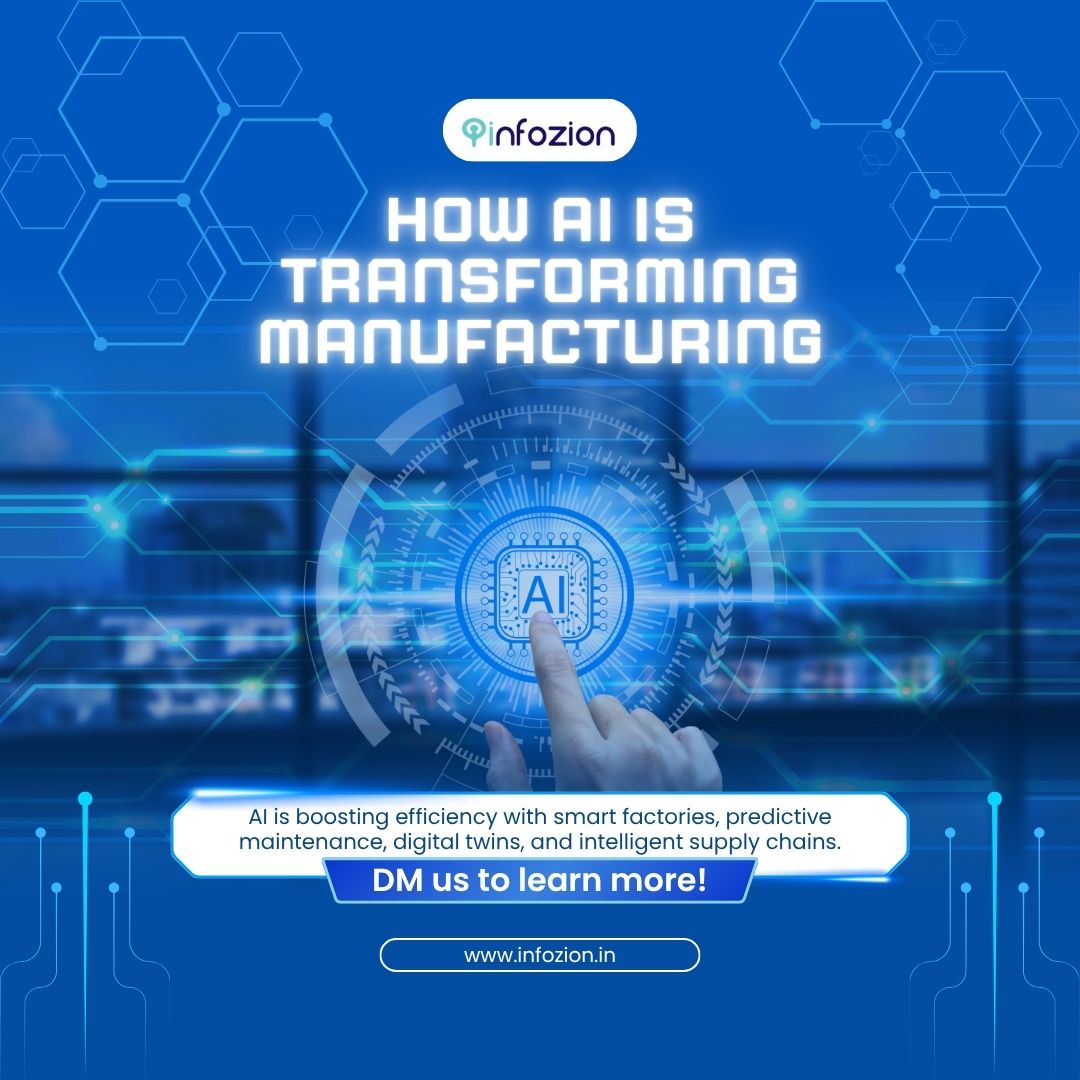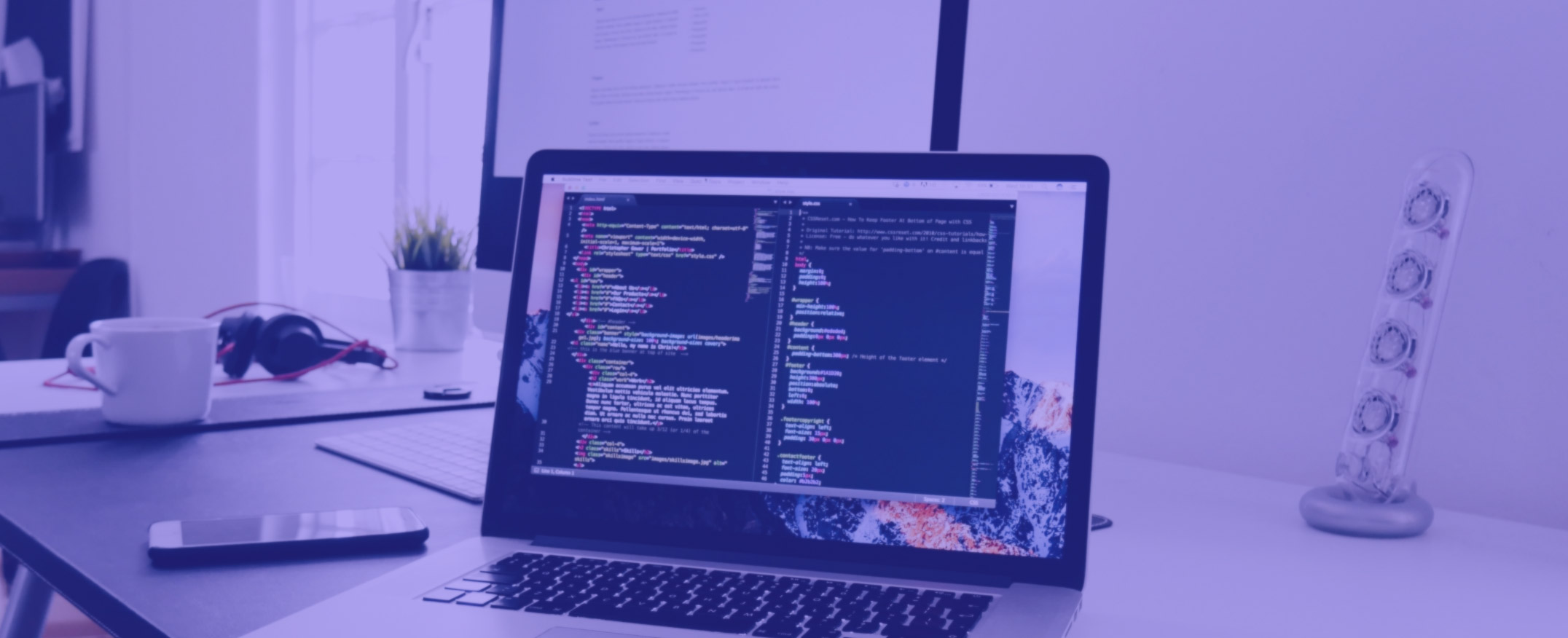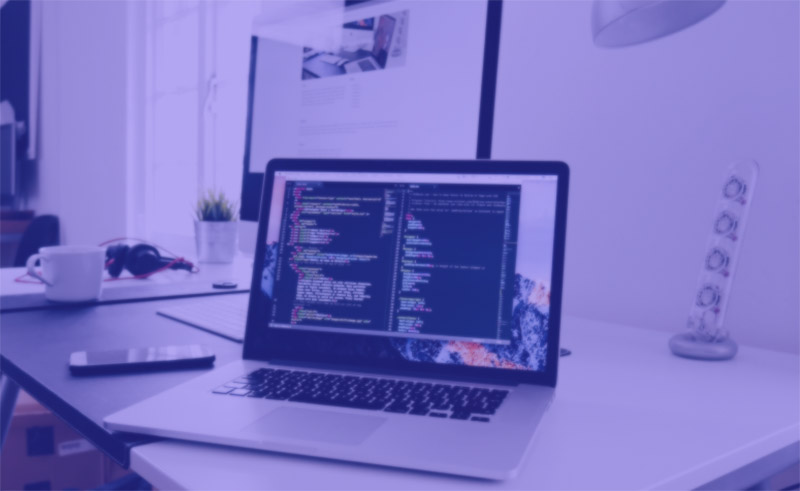How AI is Transforming Manufacturing

How AI is Transforming Manufacturing
Artificial Intelligence (AI) is driving massive changes in the manufacturing industry, making processes faster, smarter, and more efficient. From predictive maintenance AI that reduces downtime, to smart factory solutions that improve overall workflows, to quality control automation that ensures product excellence, the impact is everywhere. How AI is Transforming Manufacturing is evident as manufacturers also adopt AI supply chain optimization to manage logistics better and use digital twin manufacturing to create real-time simulations for better decision-making. Together, these technologies are shaping the future of smarter and more resilient manufacturing.
AI in Manufacturing: A Game-Changer
AI in manufacturing is not just a trend—it’s a necessity for businesses that want to stay competitive. By using predictive maintenance AI, companies can predict equipment issues before they cause costly disruptions. Smart factory solutions bring advanced automation and connectivity, ensuring that production lines adapt to changing needs instantly. At the same time, quality control automation helps manufacturers detect defects early, delivering consistent quality to customers. AI supply chain optimization ensures raw materials, inventory, and delivery moves without delays. Digital twin manufacturing adds another layer by allowing companies to build virtual replicas of their factories to test and optimize new processes before real-world application.
Predictive Maintenance AI for Efficiency
- Downtime is a major challenge, and predictive maintenance AI reduces it by analyzing performance data to predict failures before they happen.
- Seamlessly integrates with smart factory solutions through IoT sensors and real-time monitoring.
- Helps maintain product consistency by ensuring machines perform optimally even as they approach maintenance cycles.
- Supports smoother supply chains by reducing interruptions in production that can delay material flow.
- Strengthens predictive systems when combined with digital twin manufacturing, which simulates performance under various conditions.
Smart Factory Solutions for the Future
-
Core to Industry 4.0 smart factories rely on AI and IoT for adaptive and responsive production environments.
-
Real-time decision-making is enabled by predictive maintenance AI monitoring connected machines.
- Quality control automation identifies defects instantly, saving costs and ensuring consistent customer trust.
- AI supply chain optimization integrates procurement, production, and delivery for efficiency and reduced waste.
- Digital twin manufacturing enhances smart factories by allowing virtual experimentation before making real changes.
Quality Control Automation in Manufacturing
- AI-driven visual recognition and machine learning detect defects at high speed, reducing waste and enhancing consistency.
- Predictive maintenance AI supports quality by minimizing machine malfunctions that could lead to faulty products.
- Integrated into smart factory systems, quality inspection tools trigger instant corrective actions across production lines.
- AI supply chain optimization ensures raw materials are up to standard, maintaining quality throughout the process.
- Digital twins simulate testing environments, ensuring both design and performance meet rigorous benchmarks.
AI Supply Chain Optimization
- AI streamlines sourcing, production, and delivery with intelligent planning across the supply chain.
- Predictive maintenance ensures consistent production schedules and prevents delays.
- Smart factory solutions align supply systems with production needs, ensuring seamless material flow.
- Quality control automation verifies quality at every stage, from- incoming raw materials to finished goods.
- Digital twins test supply chain changes virtually, predicting bottlenecks and improving cost-efficiency.
To explore how AI is reshaping business processes beyond manufacturing, such as optimizing sales pipelines, check this article on how AI improves the sales qualifications process.
Digital Twin Manufacturing Innovation
- Creates real-time virtual replicas of machines, processes, or entire factories for continuous optimization.
- Enhances predictive maintenance AI by simulating potential failure points before they occur.
- Tests and validates quality control automation models within virtual environments for reliability.
- Strengthens AI supply chain optimization with simulations of bottlenecks and delivery challenges.
-
Provides a safer, more cost-effective way for manufacturers to innovate while minimizing risk. Learn more about digital twin technology with this detailed resource from Siemens.
How These AI Solutions Work Together
The beauty of AI in manufacturing lies in the integration of multiple solutions that amplify one another. Predictive maintenance AI ensures uninterrupted production, which fuels both smart factory solutions and AI supply chain optimization by keeping workflows efficient. At the same time, quality control automation ensures that each product meets standards, feeding into better customer satisfaction. Digital twin manufacturing acts as the central platform where all these solutions can be simulated, tested, and refined. By combining these technologies, manufacturers create smart, adaptive, and resilient ecosystems that redefine what modern manufacturing can achieve.
Conclusion: The Future of Manufacturing is AI-Driven
As industries continue to evolve, AI in manufacturing will be at the heart of progress. Predictive maintenance AI ensures minimal downtime, smart factory solutions bring agility, quality control automation secures product excellence, AI supply chain optimization guarantees smooth operations, and digital twin manufacturing provides real-time innovation. By integrating these technologies, manufacturers build a future-ready ecosystem that not only reduces costs but also enhances resilience, flexibility, and customer trust. AI-driven manufacturing is not just the future—it is the present, and businesses adopting it will lead the way in global competitiveness.





